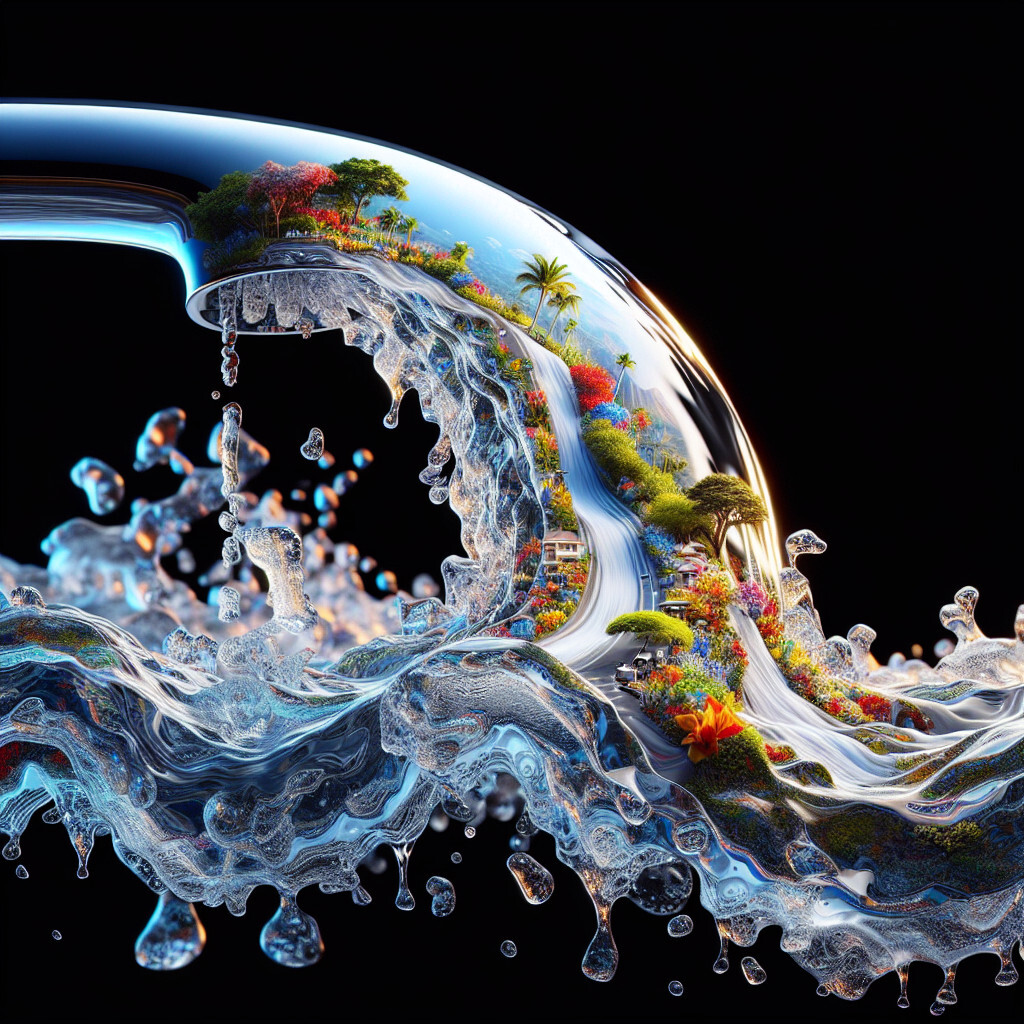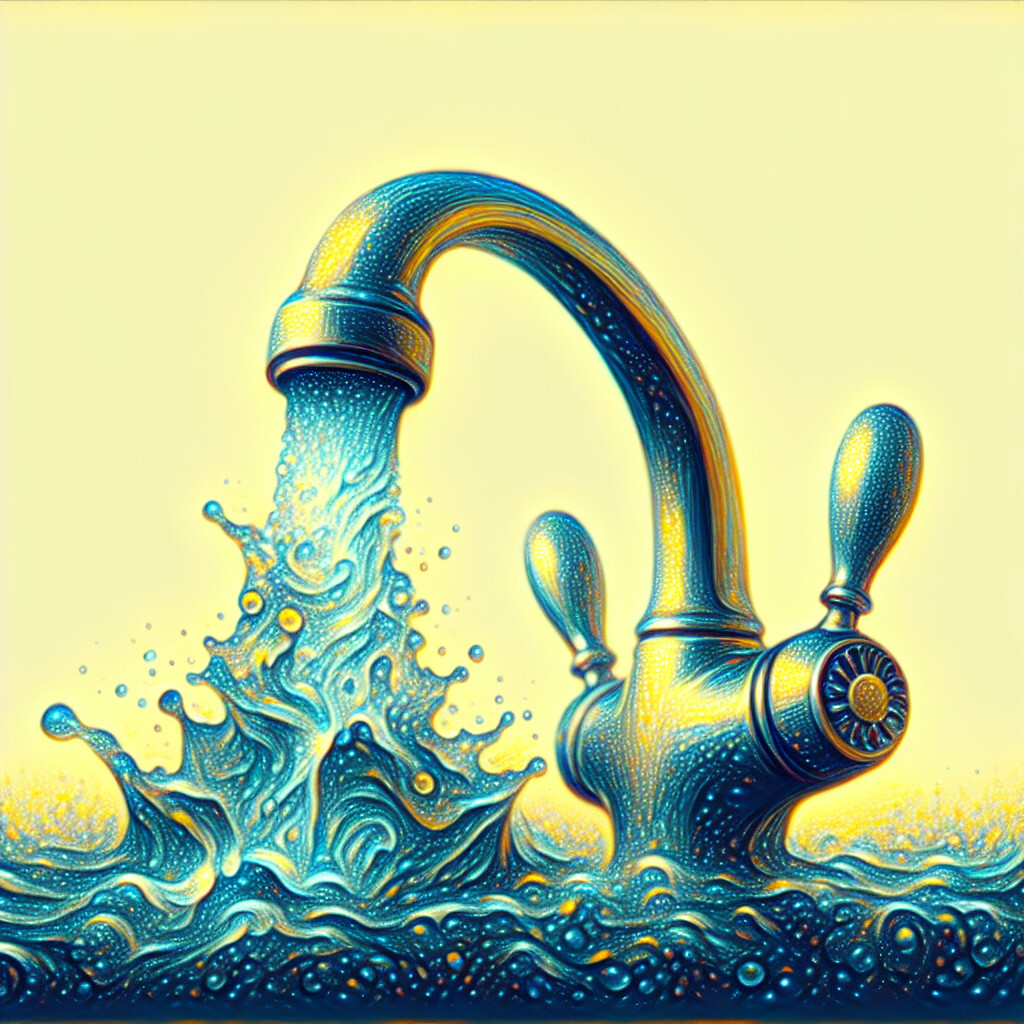-
Table of Contents
“Kona Tap Water: Pure, Refreshing, and Straight from Paradise.”
Introduction

Tap water kona refers to the public water supply in Kona, a district on the Big Island of Hawaii. This water is sourced from local aquifers and undergoes treatment to ensure it meets health and safety standards. The quality and taste of Kona’s tap water can vary based on factors such as rainfall, temperature, and the condition of the infrastructure used to deliver it. Despite these variables, it is generally considered safe for drinking and cooking.
Understanding the Quality of Kona Tap Water
Kona, a district on the Big Island of Hawaii, is renowned for its rich cultural heritage, stunning landscapes, and world-class coffee. However, an often overlooked aspect of this tropical paradise is its tap water. The quality of Kona’s tap water is a topic of interest for both residents and visitors alike, and understanding its characteristics can provide valuable insights into the overall health and sustainability of the region.
Kona’s tap water is sourced primarily from the island’s abundant groundwater reserves. These reserves are replenished by the region’s frequent rainfall, which percolates through the island’s volcanic soil, naturally filtering it and imbuing it with a unique mineral profile. This process results in tap water that is not only safe to drink but also has a distinct taste that many find appealing.
The quality of Kona’s tap water is rigorously monitored by the Hawaii Department of Health (DOH). The DOH conducts regular tests to ensure that the water meets or exceeds the standards set by the United States Environmental Protection Agency (EPA). These standards cover a wide range of potential contaminants, including bacteria, viruses, and various chemicals. The results of these tests are publicly available, providing a transparent account of the water’s safety.
In addition to its safety, Kona’s tap water is also notable for its environmental sustainability. The use of groundwater as a primary source of drinking water reduces the need for energy-intensive treatment processes. Moreover, the island’s high rainfall rates ensure a steady replenishment of the groundwater reserves, making Kona’s tap water a sustainable resource.
However, despite these positive attributes, there are some concerns associated with Kona’s tap water. One of these is the presence of naturally occurring minerals such as calcium and magnesium, which can cause the water to be ‘hard’. While hard water is not harmful to health, it can cause issues with plumbing and appliances. To address this, some residents choose to use water softeners or filters.
Another concern is the potential for contamination from agricultural activities. Kona is famous for its coffee plantations, and the use of pesticides and fertilizers in these areas can pose a risk to the groundwater. The DOH is aware of this issue and includes agricultural contaminants in its regular testing regime.
In conclusion, Kona’s tap water is generally of high quality, being safe to drink, environmentally sustainable, and possessing a unique taste. However, issues such as water hardness and potential agricultural contamination are important considerations for residents and visitors. As with any water source, it is advisable to stay informed about the quality of the tap water and to take appropriate measures if necessary.
Understanding the quality of Kona’s tap water is not just about knowing what’s in your glass. It’s about appreciating the unique geological and climatic conditions that create this resource, the rigorous testing that ensures its safety, and the challenges that need to be managed to maintain its quality. It’s a testament to the intricate balance of nature and human activity in this beautiful corner of the world.
Health Benefits of Drinking Kona Tap Water
Kona, a district on the Big Island of Hawaii, is renowned for its rich culture, beautiful landscapes, and unique coffee. However, another aspect of Kona that deserves recognition is its tap water. The tap water in Kona is not only safe to drink but also offers numerous health benefits, making it a valuable resource for both residents and visitors.
The quality of Kona’s tap water is primarily due to the island’s natural filtration system. Rainwater seeping through the island’s porous volcanic rock undergoes a natural purification process, removing impurities and contaminants. This results in tap water that is not only clean but also rich in essential minerals like calcium, magnesium, and potassium. These minerals are vital for various bodily functions, including maintaining bone health, regulating blood pressure, and supporting heart health.
Drinking Kona tap water also contributes to adequate hydration, which is crucial for overall health. Proper hydration aids in digestion, helps maintain healthy skin, and supports the function of the kidneys. It also plays a vital role in regulating body temperature, especially important in Kona’s tropical climate. Moreover, staying hydrated can boost cognitive function and mood, enhancing one’s overall well-being.
Another significant benefit of Kona tap water is its contribution to environmental sustainability. By choosing tap water over bottled water, individuals can help reduce plastic waste, a significant environmental issue. This choice not only benefits personal health but also supports the health of the planet, aligning with Hawaii’s commitment to environmental preservation.
Furthermore, Kona tap water is fluoridated, which is beneficial for dental health. Fluoride is a natural mineral that strengthens tooth enamel and helps prevent tooth decay. The Centers for Disease Control and Prevention (CDC) recognizes water fluoridation as one of the top public health achievements of the 20th century. Therefore, drinking Kona tap water can contribute to maintaining good oral health.
Despite these benefits, some individuals may express concern about the taste of tap water. However, many find that Kona’s tap water has a fresh, clean taste due to its natural filtration process. For those who prefer a different flavor, adding a slice of local fruit like pineapple or lemon can enhance the taste while providing additional health benefits.
In conclusion, Kona tap water is more than just a basic necessity. It is a healthful resource, offering numerous benefits from supporting bodily functions to promoting dental health. Moreover, it contributes to environmental sustainability, reflecting the island’s commitment to preserving its natural beauty. So, whether you’re a resident or a visitor, consider embracing the habit of drinking Kona tap water. It’s a simple act that can contribute significantly to personal health and the health of the planet.
The Role of Kona Tap Water in Hawaiian Cuisine
Kona, a district on the Big Island of Hawaii, is renowned for its rich culture, breathtaking landscapes, and unique culinary traditions. One element that plays a significant role in the distinctiveness of Hawaiian cuisine, particularly in Kona, is something that might surprise many: tap water. The quality and characteristics of Kona’s tap water have a profound impact on the taste and texture of the local food, contributing to the region’s gastronomic identity.
Kona’s tap water is sourced from the island’s natural aquifers, which are replenished by the abundant rainfall in the region. This water undergoes minimal treatment, preserving its natural mineral content. The result is a water supply that is not only safe to drink but also boasts a unique flavor profile that subtly influences the taste of food and beverages prepared with it.
The role of Kona’s tap water in Hawaiian cuisine is multifaceted. For starters, it is used in the preparation of a wide variety of dishes. From boiling vegetables to making soups and stews, the water’s mineral content subtly enhances the flavor of the ingredients. This is particularly noticeable in dishes that rely heavily on water, such as the traditional Hawaiian poke bowl, where the freshness of the seafood is complemented by the slight mineral undertones of the water.
Moreover, Kona’s tap water plays a crucial role in the preparation of beverages. The region is famous for its Kona coffee, a premium product cherished by coffee connoisseurs worldwide. The quality of the water used in brewing this coffee significantly affects its taste. The natural minerals in Kona’s tap water interact with the coffee grounds, enhancing their flavor and contributing to the coffee’s smooth, rich taste that sets it apart from other varieties.
The influence of Kona’s tap water extends beyond cooking and brewing. It also plays a vital role in the fermentation process of several traditional Hawaiian foods. For instance, poi, a staple food made from taro root, undergoes a fermentation process where water plays a crucial role. The unique characteristics of Kona’s tap water contribute to the distinct flavor of poi, which is a beloved part of the local diet.
In addition to its culinary uses, Kona’s tap water also contributes to the sustainability of the region’s food production. The availability of high-quality tap water reduces the need for bottled water, which has significant environmental implications. By using tap water in cooking, the people of Kona are not only enhancing the taste of their food but also promoting a more sustainable lifestyle.
In conclusion, Kona’s tap water plays an integral role in shaping the region’s culinary identity. Its unique mineral content subtly influences the flavor of food and beverages, contributing to the distinctiveness of Hawaiian cuisine. Moreover, the use of tap water in cooking promotes sustainability, reflecting the people of Kona’s commitment to preserving their beautiful island environment. Therefore, the next time you savor a dish or a cup of coffee in Kona, remember that the humble tap water has played a part in creating that delightful experience.
Environmental Impact of Kona’s Tap Water System
Kona, a district on the Big Island of Hawaii, is renowned for its rich cultural heritage, stunning landscapes, and unique coffee. However, an often overlooked aspect of this tropical paradise is its tap water system, which has a significant environmental impact. The tap water system in Kona is a complex network that not only provides clean drinking water to residents and tourists but also plays a crucial role in the region’s environmental sustainability.
The tap water in Kona originates from the island’s aquifers, which are naturally replenished by rainfall. This water is then treated and distributed through a vast network of pipes to homes, businesses, and public facilities. The use of local water sources reduces the need for importing bottled water, which often involves significant carbon emissions due to transportation. Moreover, the reliance on local water sources also reduces the amount of plastic waste generated from discarded water bottles, contributing to a cleaner and healthier environment.
However, the tap water system in Kona is not without its challenges. The island’s volcanic soil is highly permeable, allowing pollutants to easily seep into the groundwater. This necessitates rigorous water treatment processes to ensure the water is safe for consumption. These processes, while essential, consume a considerable amount of energy and contribute to greenhouse gas emissions. Furthermore, the infrastructure required for water treatment and distribution also has a substantial environmental footprint.
Despite these challenges, efforts are being made to minimize the environmental impact of Kona’s tap water system. For instance, the use of renewable energy sources, such as solar and wind power, is being explored to power water treatment facilities. This shift towards renewable energy not only reduces the carbon footprint of the water system but also aligns with Hawaii’s goal of becoming completely reliant on renewable energy by 2045.
In addition, there are initiatives aimed at improving the efficiency of the water distribution network. By reducing leaks and improving pipe infrastructure, less water is wasted, and less energy is required to pump water. These improvements not only conserve water but also reduce the energy consumption and carbon emissions associated with the water system.
Furthermore, public education campaigns are being implemented to encourage residents and tourists to drink tap water instead of bottled water. These campaigns highlight the environmental benefits of drinking tap water, such as reducing plastic waste and carbon emissions. They also emphasize the safety and quality of Kona’s tap water, which meets or exceeds all federal and state drinking water standards.
In conclusion, the tap water system in Kona has a significant environmental impact, both positive and negative. While it reduces the need for imported bottled water and the associated carbon emissions and plastic waste, it also presents challenges in terms of energy consumption and infrastructure footprint. However, through the use of renewable energy, infrastructure improvements, and public education, efforts are being made to minimize this impact and contribute to a more sustainable future for Kona. As residents and visitors of this beautiful island, we all have a role to play in supporting these efforts and making conscious choices about our water consumption.
Q&A
1. Question: What is the quality of tap water in Kona, Hawaii?
Answer: The tap water in Kona, Hawaii is generally safe to drink. It meets the health standards set by the Environmental Protection Agency (EPA).
2. Question: Is the tap water in Kona, Hawaii hard or soft?
Answer: The tap water in Kona, Hawaii is considered moderately hard due to the presence of minerals like calcium and magnesium.
3. Question: Does Kona’s tap water contain any unique minerals?
Answer: Yes, Kona’s tap water contains minerals like calcium, magnesium, and potassium, which are naturally found in the island’s volcanic soil.
4. Question: Is it necessary to filter tap water in Kona, Hawaii?
Answer: While Kona’s tap water is generally safe to drink, some residents and visitors choose to use a filter for taste preferences or extra precaution.
Conclusion
After researching, it can be concluded that the tap water in Kona, Hawaii, is generally safe to drink. It is sourced from high-quality groundwater resources and undergoes strict testing to ensure it meets safety standards. However, as with any location, the taste and quality can vary, and some individuals may prefer to use a filter or drink bottled water.






